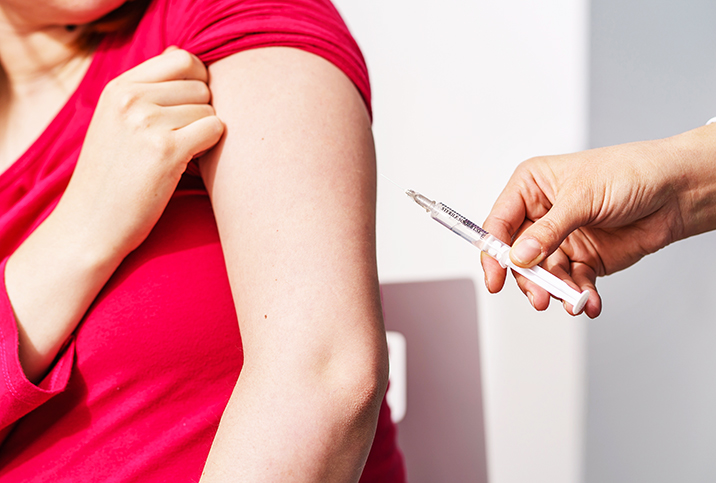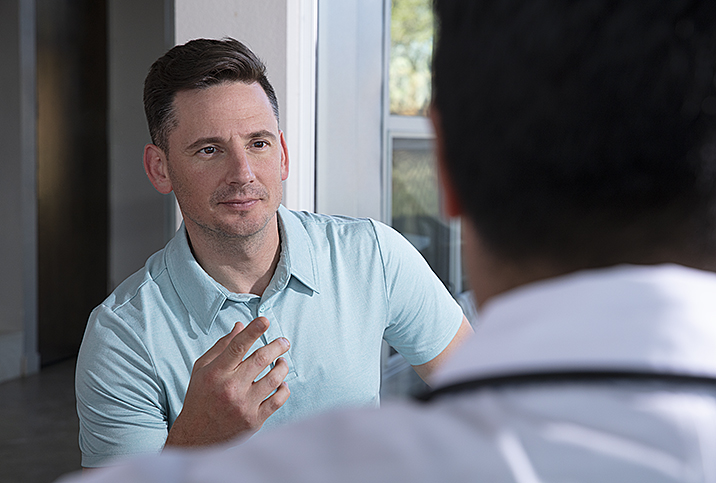Does Your Child Need the HPV Vaccine?

Across your lifetime, you're going to be exposed to a number of viruses. Many may seem inconsequential in the moment, but they may pose serious health implications later in life. However, these same viruses could be preventable with early intervention.
A perfect example is human papillomavirus (HPV): It's very common, infections can be mild and clear up on their own, and there are long-term adverse outcomes that can affect you as an adult.
What exactly is human papillomavirus?
According to the Cleveland Clinic, almost 80 million Americans are currently infected with HPV, and the Centers of Disease Control and Prevention (CDC) estimates 42 million of those cases are of HPV types that can cause disease. Around 13 million to 14 million Americans, including teens, get infected every year, and the CDC declares that nearly all sexually active women and men will have the virus at some point in their lives.
"Human papillomavirus (HPV) is very prevalent in the United States and it can be the cause of cervical cancer," explained Emmanuella Auguste, M.D. "It spreads through direct sexual contact and can also be transmitted to the mouth by oral sex. HPV typically presents as warts—similar to raised, cauliflower-like lesions—affecting the anal and genital areas. While there are many different genotypes of HPV, HPV 16 and 18 are high-risk genotypes that most commonly cause cervical cancer. HPV is also known to lead to anogenital and oropharyngeal diseases in both males and females."
As the mother of teen boys, I find these numbers alarming. There is some comfort in knowing many HPV-type infections clear up on their own within two years, but some last longer and can cause cancers, such as cervical and vaginal cancer, as well as cancer of the vulva. Men can develop cancer of the penis, and anyone could develop cancer of the anus.
Although cervical cancer is the most common disease related to HPV infections, there are other complications that can arise. These often manifest as oral and respiratory lesions, and lesions on the tongue, tonsils and soft palate, or within the larynx and nose.
Considerations for males
Just about every public service announcement providing medical information about HPV vaccines emphasizes the possibility of cervical cancer. So, I often wondered why this vaccine was relevant for my teenage sons.
"HPV commonly affects both males and females," Auguste said. "In males, HPV more commonly leads to oropharyngeal cancer, anal cancer and even penile cancer. The persistent virus enters the body through cuts or tears in vulnerable areas, resulting in oropharyngeal and anogenital diseases.
"More importantly, without proper STD screening, HPV can often go unnoticed and be underdiagnosed in men," Auguste continued. "Therefore, since HPV is a sexually transmitted disease, affected men increase the risk of infection in women, consequently leading to morbidity and mortality in women over time. And that leads us back to the importance of HPV vaccines in both women and men."
Kathey Wanliss, the mother of a teenage boy, shared why she decided to have her son vaccinated against HPV.
'In males, HPV more commonly leads to oropharyngeal cancer, anal cancer and even penile cancer.'
"I am a pro-vaxxer," Wanliss said. "I've always maintained that if there was a vaccine for ringworm, my kids would be first in line. Quite simply, I would do anything to guarantee the health and safety of my children. I have to admit, though, before I had my son, I thought that only girls were at risk of contracting this virus."
Wanliss went on to share that she "saw an ad on TV with a young man sharing his testimony on how he contracted the HPV virus. Left untreated, he eventually got cancer. This was not going to happen to my child, not my watch."
How HPV vaccines work
Of course, parents see the care and well-being of their children as their ultimate priority. Many, for the most part, accept the importance and value of vaccination, but also want to know and understand what is being given to their children.
"The HPV vaccine is the best protective and preventive measure against cervical cancer and HPV-associated diseases," Auguste explained. "It serves as a prophylaxis, specifically in women, that prevents precancerous lesions and fatal cervical dysplasia—that is, cervical cancer.
"The most commonly known HPV vaccine is Gardasil," Auguste added. "[It] specifically targets high-risk genotypes—HPV 16 and 18. Gardasil is given as a preventive treatment to both males and females, as it is effective against oropharyngeal and anal cancer, in addition to cervical cancer. Past research studies have demonstrated that high morbidity and mortality cases due to cervical cancer or HPV-associated diseases are the result of a lack of STD screening and being unvaccinated. As a result, to prevent these adverse effects, routine HPV vaccination is recommended for both men and women between ages 11 and 26, although it can be administered to children as young as 9 years old."
In the ongoing quest to keep our children safe, our first line of defense must be to be fully educated. Understanding how the human papillomavirus manifests and affects the body is crucial in making healthcare decisions for preventive care.
As with all important medical decisions for your children, consult their pediatrician for specific medical advice and treatment.


















